Electric cars: why solid state batteries will eliminate range anxiety
Cutting-edge battery tech provides twice as much power per charge as lithium-ion versions in current EVs
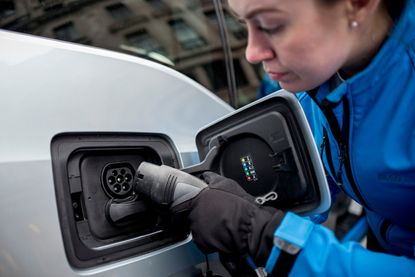
Carmakers are perfecting a new form of solid-state battery technology designed to eliminate one of the chief concerns among prospective EV buyers - range anxiety.
Today’s electric cars, from the Tesla Model 3 saloon to Jaguar’s I-Pace crossover, are all powered by lithium-ion batteries. These cells, which have been around for decades, are relatively cheap to charge but can’t compete with the range of petrol or diesel cars, leaving EV owners anxious about running out of power between charging stations.
However, it will be a different story when the “miraculous” new solid-state battery technology makes its way into production cars, says Autocar.
Subscribe to The Week
Escape your echo chamber. Get the facts behind the news, plus analysis from multiple perspectives.

Sign up for The Week's Free Newsletters
From our morning news briefing to a weekly Good News Newsletter, get the best of The Week delivered directly to your inbox.
From our morning news briefing to a weekly Good News Newsletter, get the best of The Week delivered directly to your inbox.
What are solid-state batteries?
As the name suggests, solid-state batteries are composed of “solid lithium electrodes” set in rigid “conductive” material such as ceramic or a polymer, reports Alphr.
By contrast, conventional lithium-ion batteries use solid lithium electrodes and are encased in a “chemical electrolyte”.
So why are they better than lithium-ion batteries?
Replacing the wet electrolyte with a solid means that the new batteries should be easier to make - and therefore cheaper - than the lithium-ion versions, says Top Gear.
But arguably the “biggest bonus” of solid-state technology is the improved “energy density” - the amount of power a battery can store “relative to its weight and volume”, according to Autocar. Solid-state units can reportedly store more than twice the energy of a lithium-ion battery pack, meaning drivers will get far more range.
Indeed, Dyson - due to enter the EV market in 2021 - claims to be working on a solid-state battery that offers up to 400Wh/kg of energy density, Car magazine reports. That’s almost double the punch of Tesla’s Panasonic-developed lithium-ion battery, at around 240Wh/kg, and could even surpass the total mileage of a full tank of fuel in a combustion-engined vehicle.
And better range isn’t the only benefit offered by solid-state systems.
Lithium-ion batteries have a reputation for being unsafe in the event of a collision, as rupturing the battery cells can lead to chemical fires. Although manufacturers install armoured plates to protect the cells, there have been a number of electric vehicle fire incidents.
The most recent occurred in Hong Kong in May, when a Tesla Model S burst into flames without warning some 30 minutes after the owner parked.
The lack of a chemical element in solid-state batteries should reduce this risk significantly. They’re also easier to cool than lithium-ion packs, further reducing the likelihood of fires, says Top Gear.
When will they feature in production cars?
Carmakers are racing to be the first to introduce solid-state batteries in their EVs, but no firm launch dates have been set as yet.
Dyson was expected to introduce the new power tech in its first-generation EVs, but now looks likely to use lithium-ion batteries for the time being, Electrek reports.
Meanwhile, Toyota announced last month that it plans to introduce electric cars with solid-state batteries as early as 2020, some two years earlier than originally planned, says Digital Trends.
Create an account with the same email registered to your subscription to unlock access.
Sign up for Today's Best Articles in your inbox
A free daily email with the biggest news stories of the day – and the best features from TheWeek.com
-
 'Make legal immigration a more plausible option'
'Make legal immigration a more plausible option'Instant Opinion Opinion, comment and editorials of the day
By Harold Maass, The Week US Published
-
 LA-to-Las Vegas high-speed rail line breaks ground
LA-to-Las Vegas high-speed rail line breaks groundSpeed Read The railway will be ready as soon as 2028
By Peter Weber, The Week US Published
-
 Israel's military intelligence chief resigns
Israel's military intelligence chief resignsSpeed Read Maj. Gen. Aharon Haliva is the first leader to quit for failing to prevent the Hamas attack in October
By Justin Klawans, The Week US Published
-
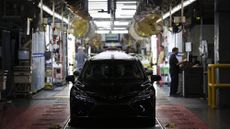 Are plug-in hybrids better for America's climate goals?
Are plug-in hybrids better for America's climate goals?Talking Points The car industry considers a 'slower, but more plausible path' to reducing emissions
By Joel Mathis, The Week US Published
-
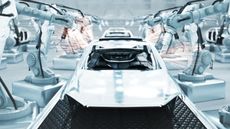 EV market slowdown: a bump in the road for Tesla?
EV market slowdown: a bump in the road for Tesla?Talking Point The electric vehicle market has stalled – with worrying consequences for carmakers
By The Week UK Published
-
 The week's good news: Dec. 14, 2023
The week's good news: Dec. 14, 2023Feature It wasn't all bad!
By Catherine Garcia, The Week US Published
-
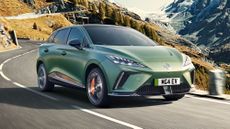 MG4 EV XPower review: what the car critics say
MG4 EV XPower review: what the car critics sayFeature The XPower just 'isn't as much fun' as a regular MG4
By The Week Staff Published
-
 Volkswagen ID.5 review: what the car critics say
Volkswagen ID.5 review: what the car critics sayFeature The ID.4's 'sportier, more stylish twin' – but 'don't believe the hype'
By The Week Staff Published
-
 BMW iX1 review: what the car critics say
BMW iX1 review: what the car critics sayThe Week Recommends BMW’s smallest electric crossover has ‘precise’ steering and a ‘smart interior’
By The Week Staff Published
-
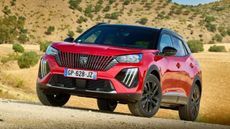 2023 Peugeot e-2008 review: what the car critics say
2023 Peugeot e-2008 review: what the car critics sayThe Week Recommends This small electric crossover has a ‘sophisticated feel’ and a bigger battery than the original
By The Week Staff Published
-
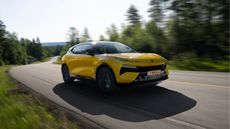 Lotus Eletre review: what the car critics say
Lotus Eletre review: what the car critics sayThe Week Recommends All-electric hyper SUV is not just entertaining to drive – it’s also ‘extraordinarily well made’
By The Week Staff Published